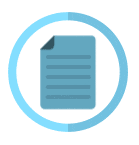Publication Ethics
Publication Ethics
Agribisnis Wijaya Putra Surabaya (AGRIWITAS) is a journal managed by the Department of Management, Faculty of Agriculture, Wijaya Putra University (UWP) and is published regularly twice a year (March and September).
This statement of code of ethics is a statement of ethical code of all parties involved in the process of publishing scientific journals including managers, editors, peer reviewers, website administrators, and authors. The ethics of scientific publication are based on Regulation of Head of LIPI No.5 Year 2014 about Code of Ethics of Scientific Publication. Code of Ethics of Scientific Publications essentially upholds three (3) ethical values in publications, namely:
- Neutrality, which is free from conflict of interest among the editorial members;
- Justice, which gives the right of authorship to the author;
- Honesty, which is free from duplication, fabrication, falsification, and plagiarism (DF2P) in publication.
The Duties and Responsibilities of Editorial Board
- Determine the name of the journal, scope of knowledge, period, and accreditation if necessary.
- Determine the members of editorial board.
- Define the relationship between publishers, editors, peer-reviewers, and others in a contract.
- Appreciate the things that are confidential, both for contributing researchers, authors, editors, or peer-reviewers.
- Implement norms and provisions on intellectual property rights, especially copyright.
- Review the journal policy and submit it to the author, editor board, peer-riviewer, and reader.
- Make guidelines of code of behave for editors and peer-reviewers.
- Publish the journal regularly.
- Ensure the availability of funding sources for sustainability of journal publication.
- Build network of cooperation
- Prepare licensing and other legality aspects.
The Duties and Responsibilities of the Editors
- Meet the needs of readers and authors.
- Have the efforts to improve the quality of publications on an ongoing basis.
- Implement processes to ensure the quality of published papers.
- Prioritize freedom of expression.
- Maintain the integrity of the author's academic record.
- Deliver corrections, clarifications, withdrawals and apologies as required.
- Responsible for the style and format of the paper, while the contents and all statements in the paper is the responsibility of the author.
- Actively seek the opinions of authors, readers, peer-riviewers, and members of editorial board to improve the quality of publications.
- Encourage the assessment of the journal if there are findings.
- Support initiatives to educate researchers about the ethics of publications.
- Assess the effect of the publishing policy on the author and peer-riviewer’s attitudes and fix them to increase responsibility and minimize errors.
- Have open minds to new opinions or views of others who may be contrary to personal opinions.
- Do not defend an opinion of oneself, author or third party that may result in a non-objective decision.
- Encourage the authors to revise the submitted paper until it deserved to be published.
The Duties and Responsibilities of Peer-Reviewer
- Getting a job from the editor to review the paper and submit the review to the editor, as a material for determining the feasibility of a paper to be published.
- The reviewer shall not review any paper involving him, whether directly or indirectly
- Maintain the author's privacy by not disseminating the results of corrections, suggestions, and recommendations by providing criticism, suggestions, feedback, and recommendations
- Encourage authors to make improvements to the paper
- Reviewing the written works that have been improved in accordance with predetermined standards
- The papers are reviewed in a timely manner according to the published style of scriptures (data collection methods, author's legality, conclusions, etc.).
The Duties and Responsibilities of Authors
- Ensure that the author list meets the criteria as the author
- Collectively responsible for the work and the contents of the article including methods, analysis, calculations, and details
- Express the origin of the resources (including funding), either directly or indirectly
- Explain the limitations of the study
- Respond to comments made by the peer-reviewer in a professional and timely manner
- Inform the editor if willing to retract the paper
- Make a statement that the papers submitted for publication are original, have not been published anywhere in any language, and are not in the process of submitting to other publishers













